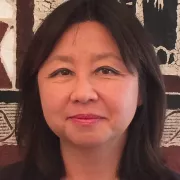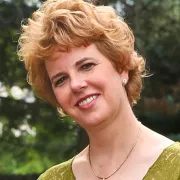What Is the Future of Microfinance?
The COVID-19 crisis is forcing traditional microfinance institutions to adapt to a very different way of working and many MFIs are experimenting with using more digital means to enable them to work with clients while social distancing. This is providing an opportunity for traditional MFIs to rethink their approach to technology and is opening up a conversation about the resilience of the traditional microfinance model in the digital age. What does the COVID-19 crisis mean for the future of microfinance? Should MFIs take digital transformation more seriously? What will it take to get them there? And what is at stake if they don’t modernize?
Our panelists bring diverse perspectives on the topic, drawing on decades of experience in the sector. They have examined different aspects of how the industry has evolved and what lies ahead in a new book “The Future of Microfinance” released in June, and most recently, in a new essay by Greta Bull, which brings some of these key questions into a sharp focus in the context of the COVID-19 crisis.
The panelists in this webinar recording explore lessons from the past and discuss challenges and opportunities that new trends in digital finance present for microfinance institutions.
About this Webinar
Recorded
Speaker Bios

Greta Bull (Moderator)
Greta Bull is the CEO of CGAP and a director at the World Bank Group. She has 18 years of experience in development finance, primarily focused on small and medium enterprise finance, microfinance, and digital financial services. She has worked with both financial services providers and policy makers in Latin America, Central and Eastern Europe, Sub-Saharan Africa, and South Asia. Her clients have included banks, microfinance institutions, mobile network operators, and FinTechs. Before joining CGAP, Greta was a manager for Financial Institutions Advisory Services at the International Finance Corporation. Other career highlights include serving as director of the Finance, Banking and Enterprise Division at DAI Europe and holding senior-level positions at the Eurasia Foundation.

Momina Aijazuddin
Momina Aijazuddin is the Global Head of Microfinance at IFC. She also works as Principal Investment Officer in IFC’s Financial Institution Group (FIG). She covers IFC’s microfinance investment and advisory activities globally, which exceeds cumulative investments of $6 billion worldwide with over 300 microfinance institutions (MFIs), in addition to advisory services worth $63.7 million in 68 projects across 30 countries. She leads IFC’s efforts on financial inclusion, including MFIs, payment companies and banks for the Universal Financial Access Initiative ( UFA) and serves on the Board of MEF, Microfinance Enhancement Facility.

Renée Chao Beroff
Renée Chao-Beroff is the founder and Managing Director of PAMIGA and PAMIGA FINANCE SA, an investment vehicle in rural microfinance for Sub-Saharan Africa. In 2019, with the merger of CIDR with PAMIGA, she became the CEO of CIDR Pamiga, an international NGO which aims to help unlock the social and economic potential of rural populations in Africa, Latin America and Asia. Renée has worked in the financial inclusion sector for over 20 years, both in the field, in remote rural areas and in poor peri-urban neighborhoods, and as advisor to donors and public and private decision-makers in policy and strategy. She has initiated work in measuring social and environmental performance for microfinance as Chairwoman of CERISE and participated in the founding of the Social Performance Task Force. She was a member of the Policy Advisory Group and the Executive Committee of CGAP for 10 years.

Paul DiLeo
Paul DiLeo is the Founder of Grassroots Capital Management PBC and has over three decades of experience in development finance and 20 years in the microfinance sector. Paul led equity investments in microfinance institutions in India and Bangladesh as early as 2001 and to date has managed or advised funds that have invested equity in 35 microfinance companies. In 2003, he helped launch and managed the first private, for-profit microfinance fund of funds, the Gray Ghost Microfinance Fund, which invested $100 million in 23 microfinance investment vehicles. Since founding Grassroots in 2007, Paul has gone on to help launch and manage debt and equity funds in India, Africa and Latin America, including three of the top ten “2016 Best of the World” GIIRS rated funds. Grassroots’ most recent initiative was to launch Edfin, an affordable education finance company in Lagos.

Jennifer Isern
Dr. Jennifer Isern, the CEO of Catalyze Global Impact, LLC, brings over 30 years of experience in development in more than 65 countries. Catalyze Global Impact, LLC promotes investing and technical assistance to leverage financial and private sector solutions to improve quality of life for people globally. Previously, Jennifer served 23 years in multiple roles in the International Finance Corporation (IFC) and the World Bank Group, including as Senior Manager in South Asia and Senior Manager in East Asia and the Pacific, where she led regional teams to support clients on financial sector development with focus on expanding access to finance for households and SMEs, fintech and payments, financial infrastructure, debt resolution and insolvency, agribusiness, and capital markets. From 1996 to 2009, she worked as Lead Microfinance Specialist at CGAP.

Ira W. Lieberman
Dr. Ira W. Lieberman has over four decades of international development and private sector experience. He is currently Chairman and CEO of LIPAM International, Inc., an advisory firm that works with governments, international financial institutions, NGOs and the private sector in developing and transition countries. He is a co-editor of The Future of Microfinance, Brooking’s Press, 2020. Ira has held several board positions for major institutions that serve the microfinance sector. He also taught on Governance at the Boulder Microfinance Institute for 10 years and has published extensively on several areas of microfinance and SMEs. In 1995, Ira started the secretariat for CGAP, and managed CGAP as its CEO from 1995 to 1999. He also served as acting director of the World Bank Group’s SME Department and chaired the Donor Committee for Small Business.

Timothy Ogden
Tim is Managing Director of the Financial Access Initiative, a research initiative exploring how financial services can better meet the needs and improve the lives of poor households. He also serves as the managing director of the US Financial Diaries project. He is a co-founder of Sona Partners, a thought leadership communications firm. Tim is the author of Experimental Conversations, a collection of interviews with leading development economists, co-author of Toyota Under Fire, a regular contributor to Stanford Social Innovation Review and a Contributing Editor of Alliance Magazine. He has developed, written and edited more than 20 books on topics including leadership, marketing, operations, finance and international aid & development.



Great opportunity for this webinar, Covid-19 is redefined the operations of microfinance and the webinar sharing's are to help stakeholders to have alternative approaches , thank you
Thanks for this webinar will, like to attend
what about integrating new business models in Microfinance?Are there data source about the business models of MFIs?
What is the future of Microfinance? It is one of the relevant topics to be discussed and to develop strategies to face the challenges thrown by the pandemic.
There is a gray area between the microfinance and SMEs enterprise - we would like to give more time in how to transferee the Microfinance into SME finance? What Covid-19 pandemic did for the best practice and financial ratios to measure the performance of the MFIs?
Dear colleagues
Thank you for this invitation… and we look forward to take part in the discussion.
Indeed, the current Corona emergency is expected to have the greatest challenge especially to communities with majority leading vulnerable livelihoods. That would also have high implications on operations of institutions working closely with such communities. Financial service providers like MFIs would be among the institutions to bear highest risks. MFIs have different experiences…. Specifically on saving services, early observations suggest that those institutions who have been very active on supporting rural and urban people through their flexible saving services have built positive public image. Indeed, saving collection has slowed down, mainly because many businesses (and income generation) have slowed down. For some MFIs such innovative saving mobilization initiatives as (Susu-type) door-to-door collections have to be stopped, to limit contacts especially at businesses, markets where many people gather. As expected, saving withdrawal has been increasing, as households want to stock some consumption items in this uncertain moment. Some saving clients who committed for ‘’time deposit’’ also withdrew their money, before the contractual time, and foregoing the potential higher saving interest rate that could be enjoyed if original contract was to be maintained. In fact, it was found out, that some savers withdrew their savings, panicking about the uncertain future, and expecting that the MFIs could as well collapse. Yet easy access to their saving deposits is said to be appreciated by clients, who now can cope better from their vulnerable circumstances. … Some MFIs are also demonstrating their commitment to their social objectives by actively implementing health related directions, and supporting their clients. Such MFIs have already distributed soap, alcohols, sanitizers, etc to field offices, and created awareness on Corona for those who come to group meetings, or MFI office, knowing that such clients have very limited or no other opportunity to get awareness on this emergency.
But some of us still do not have access to the new book (The Future of Microfinance). Is it not possible to get a copy??
Getaneh (getanehg2002@yahoo.com)
"COVID-19 pandemic impacted the lives of the microfinance clients as well as the microfinance industry. The transformation of poor people's lives will take a long way than before, and thus need a fresh look to the clients and the industry".
I want to participate, I am Javier Juna from Ecuador FINCA BANK
Leave a comment